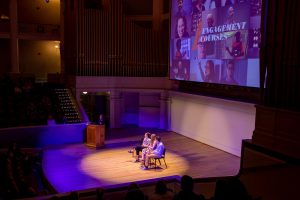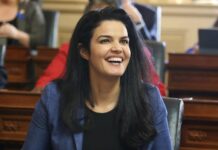
The faculty of the University’s College of Arts & Sciences voted on Oct. 18 to permanently adopt its New College Curriculum, which has been utilized voluntarily by some undergraduate students since Fall 2017 on a trial basis. Providing new, uniform requirements for students in the College to fulfill their General Education obligations, the New Curriculum marks the first significant, comprehensive changes to the University’s undergraduate model of education in more than 40 years.
The New College Curriculum differs from the University’s previous model in that it features smaller, so-called “Engagement” courses intended specifically for first-year undergraduates. “Engagements” are designed to “help students develop intellectual sensibilities” and are titled Engaging Aesthetics, Engaging Differences, Empirical and Scientific Engagement, and Ethical Engagement. In addition, as in the past, students must satisfy writing, quantitative, and foreign language requirements.
Senior Vice Provost of Stanford University, Harry Elam, reviewed the program as an external advisor for Virginia. Elam complimented the “well-designed” framework of the curriculum.
“As the cornerstone of the New College Curriculum, the Engagements courses are truly exciting,” Elam said, predicting that “as such, [the New College Curriculum] may prove to be an innovative model that other institutions emulate.”
During its inaugural Fall 2017 semester, 500 students opted to participate in the New College Curriculum rather than choosing the traditional route. Now in the midst of the Fall 2019 semester, University administrators have seen that number ratchet up to 1,900 as more students have joined the program.
University Dean Ian Baucom, who serves in the College of Arts and Sciences, expressed his approval of the outcome of Friday’s vote.
“The fact that our faculty voted to affirm the new curriculum is not only significant for UVA, it is a milestone in American higher education,” Baucom told UVA Today. “We’re staking a claim on the power of a liberal arts education in the 21st century with a unique new approach that will better prepare our students for an increasingly complex and interconnected world…I can’t overstate how excited I am for our students or how proud I am of our faculty for taking this on.”
Though the program has officially received the stamp of approval by University faculty, a group of “College Fellows,” a rotating cohort of professors across academic departments and directly impacted by the new measures, will continue to evaluate the New College Curriculum in order to strengthen the model and respond to student concerns.
In 2017, during the early stages of the new system’s pilot program, Professor of History and Latin American Studies Herbert “Tico” Braun told WUVA his reasons for supporting the redesign of longstanding academic traditions at the University.
“There is a lot of nervous energy in the Engagements that is contagious. The students are a bit nervous, of course,” said Braun, “but we the faculty are on edge too. The students and the faculty sense that we are on a common voyage. As scholars and teachers we are not delivering knowledge so much as we are asking questions. So we are both exploring together. My hope is that…the New Curriculum, and the Engagements in particular, will be a reason for which students apply to the University and want to come here.”
















